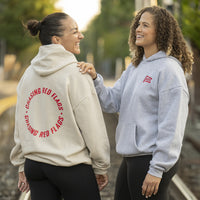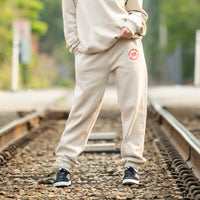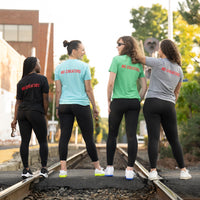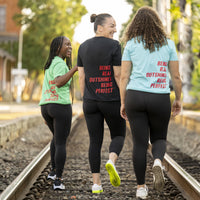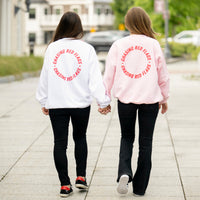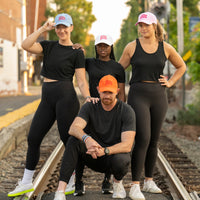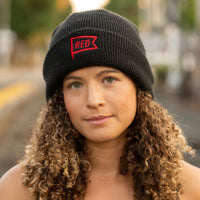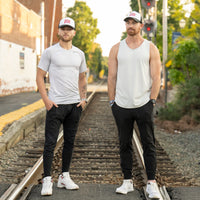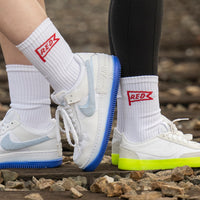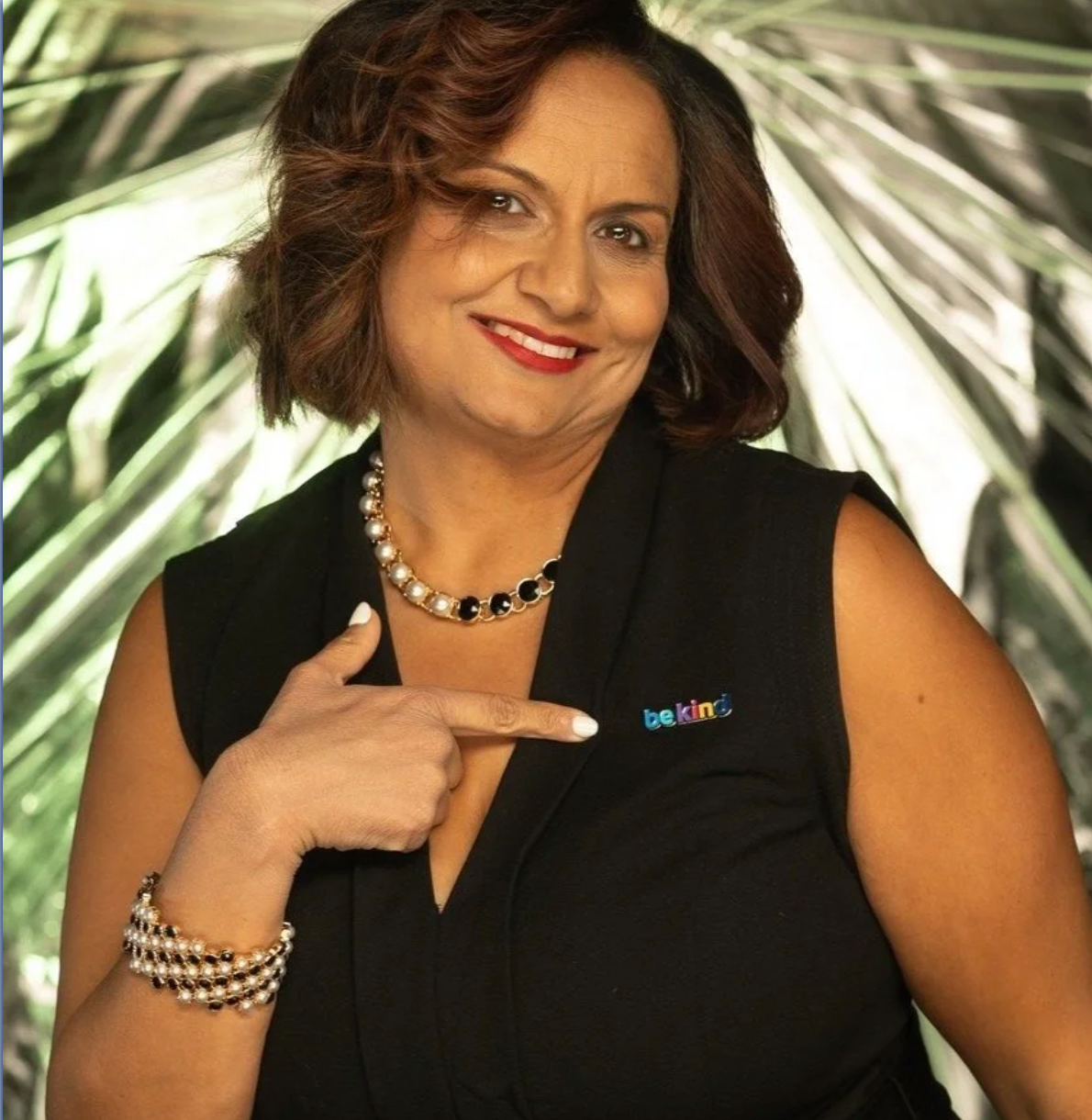
For people on the autism spectrum, issues with friendship making begin very young. I can speak from first hand experience, as being a woman diagnosed when I was 20 with autism spectrum formerly known as Asperger’s Syndrome. I share openly about my story on my podcast “On the Spectrum with Sonia”, and I wrote a book called “Dropped in a Maze.” I discuss life pre and post diagnosis, and discuss more in detail the difficulties with socialization and friendship making amongst other topics. I also share achievements and accolades I attained as I learned to navigate my maze of life. Hence, your tissue box won’t be completely empty by the time you’re finished reading my book, but I hope your furniture is still in place and no windows broken.
Starting from child hood, my issues with making and keeping friends was always prevalent, but it stood out more during my first go around in second grade. Yes, I said first go around because I failed second grade. I still have been patiently waiting all these years for the Nobel prize for being a first generation Indian American to achieve such a thing.
Anyhow, back to the first time doing second grade, the teacher Mrs. Schmidt made a rule that if a classmate was going to have a birthday party, the whole class had to be invited otherwise there would be no birthday party. Sure enough, one classmate, Julia, was having a birthday celebration and handed out invitations to the classmates. I noticed that I never received an invitation, and I went to ask Julia about it during recess. She told me that her mother told her she had to cut one person down, so she couldn’t invite me. This wasn’t the first nor would it be the last time I would hear something like this.
Recess was indoors that day, I went around asking other classmates if they received an invite in the desperate hope that I wasn’t alone. I came to find out the hard way that I in fact had been the only person excluded.
SOCIAL BLINDNESS AND FAILURE TO LOVE UP TO PEER EXPECTATIONS OF BEHAVIORS
Friendships continued to remain difficult even after my parents moved the family to a different town after I finished second grade at the public school for my round 2. I thought I made some progress when I made 3 friends, or so I thought, in 3rd grade: Jessica, Mary, and Tina. I was a very sensitive child/teen in elementary and middle school. I used to cry very easily especially when classmates acted rudely to me for reasons I could never understand at the time. As I reflect back, I didn’t read social cues well, I didn’t know how to respond to people appropriately, I didn’t know when to give up on trying to be liked, and I was unaware of how I was appearing and coming across to others.
These same behaviors I exhibited were the same behaviors that eventually caused Tina, Mary, and Jessica to pull away by the time we were in 4th grade. Out of desperation for belonging and friendships, I would throw birthday parties to try to win over friends and to prove I was cool. I gave classmates, some of whom never treated me well, invitations purely out of my desperation and deep feelings of shame towards myself. This became the pattern for the later part of elementary school and into middle school before I finally got a clue.
TRYING TOO HARD
My lack of social skills came to a head when I started 6th grade. I had to deal with tons of new people from the two other elementary schools in town. I saw rather quickly that friendship groups were forming, and I didn’t know where I fit in. I noticed that people didn’t interact with me in quite the same way they interacted with other peers. I was crushing on a guy in my grade, Jacob.
Despite him being such a jerk when he found out about me crushing on him, my brain wasn’t able to let go easily. A key trait of being on the autism spectrum is fixation and repetitive behaviors. I made up a cheer out of my sheer boredom during passing periods, and that cheer was about Jacob.
The attention from the cheer started to pick up the next day during lunch. It wasn’t before long that it became a daily repertoire for me to perform the cheer at school. The cheers were always met with an uproar of laughter. Even though I was somewhat bewildered as to what was so funny, a part of me enjoyed the dopamine rush after each repetition of the cheer.
Teachers started intervening after my mom’s call to the vice principal after what she saw happen after a color guard routine I performed for band class. My mom was putting away her camcorder in its case when a group of guys cornered me and demanded I do my cheer. Then in unison, the group started saying “do it, do it do it!”
People stopped asking for the cheers eventually, and I came to realize another attempt at friendship making failed. I started becoming very depressed and talked about suicide at school. The closest thing I ever had to suicidal ideation was an image of a night sky where I saw the stars shining bright alongside a full moon that radiated the sky. That same image of the night sky started to reappear strongly after the cheer fiasco.
I eventually got placed on restrictions in order to stay in the school district. This meant I had to be escorted to and from class by the special education teacher or her paraprofessionals. I had to wait in the special education room during passing periods, and I wasn’t allowed to eat lunch in the cafeteria for some time. I was eventually allowed to have someone eat lunch with me in the special education room, but the teacher or her paraprofessionals would have to ask the student. My conversations were monitored, but I was never taught the social skills in how to be successful in developing friendships.
As restrictions eased, the acting out only changed to instead of doing cheers, I was now making funny faces, doing funny dance moves, and making weird sounds. I was practicing the exact definition of insanity thinking I will eventually win over friends. I learned the hard way over summer break before starting 8th grade, when I would try to invite people to come over, nobody would ever want to come. I was left friendless, confused, lost, lonely, and sad from the rest of middle school and all throughout high school because I was stereotyped and red painted bright and heavy to the corner.
WELCOME TO ADULTHOOD. LESSONS FROM THE SCHOOL OF HARD KNOCKS.
I completed my first year of college, Tippecanoe University, at the local branch near my home before moving to the main campus to start my sophomore year. Before the fall semester started, my parents thought it best that I take summer school to acclimate to the environment so that it’s not too overwhelming. I took two classes during the summer of 2002, and I lived in Chancellor Hall; a dorm typically designated for 20 year olds and graduate students during the regular academic year. Chancellor Hall was situated right near the campus. When my parents helped me move into my room, my roommate, Janet, had already arrived.
At first we got along great. We went for a walk together later that evening, and she was telling me about her upbringing and lessons she learned throughout her life. I met other people as the summer progressed. It wasn’t before long that I developed a crush on a resident assistant. However, my lack of social skills and naiveness led me to be blinded as to exactly how much I spoke about my crush. I didn’t realize the extent as to how much I would try to include the crush, Sameer, into every conversation. Janet became critical of me throughout summer, and she called me out on it towards the end of the summer semester. Janet and I eventually had a fallingout a year later.
I finally received my diagnosis of Autism Spectrum, back then Asperger’s Syndrome, in 2002 after I took the information from a psychological assessment I had at the end of freshman year of college to the feedback I received during the summer of 2002. The main feedback was repetitive talking on a subject matter even when not pertinent to a conversation, hyperfocus and fixation on the crush I had on a guy at the time, and not understanding basic social awareness or cues.
I was very naive in college. I struggled to make friends initially, and I took people’s words literally and at face value. I was quick to trust and attach to people, despite people not showing genuineness. This rang true especially when it came time for my 21st birthday to come around.
People I met when I moved back to Chancellor Hall all agreed and sounded excited to ring in my birthday celebration. Another girl, who lived on a different floor, was someone whom I thought for sure would be in because she asked me to hold onto one of her suitcases so she didn’t have to carry it home with her that summer. I got so caught up in people’s reactions notwithstanding the fact that the vast majority of people who said “yes” weren’t even friends.
Safe to say I set myself up for serious disappointment. People bailed out left, right, and center. The envisionment of what I thought my birthday would look like and how it was not matching up to reality was a major disappointment. Instead of eating at an Italian restaurant and going out as a group afterwards to the bars, I ended up eating at a fast food restaurant alone and going out with my roommate and her friends afterwards instead. Fish Sandwich and Chocolate Shake for the pregame win!
REAL FRIENDSHIP WINS AND LESSONS DISCOVERED
The real wins in friendships started coming around when I started going out more, and quite honestly, after I had dropped some of the weight of toxic friendships that wore me down. I will admit, I became a toxic person after my 21st birthday because of how let down I was, and I fell into a deep depressive episode that lasted for the remainder of the semester. Things changed once I was removed from certain individuals.
The closest friend I ended up making was Carrie. Carrie was growing on her own journey. This is best described from an excerpt of “Dropped in a Maze” below:
Carrie and I connected on deeper levels of pain in that she and I shared a similar tormented childhood. …. I enjoyed seeing Carrie on her healing journey. She used to vocalize lessons she learned through her experiences. …. I was able to fully appreciate her realization, and it inspired me to dig deeper within myself. It would take years before I was able to learn how to fully realize how to be self-introspective and go deeper to heal myself.
LESSONS NEEDED TO BE LEARNED OF WHO IS REALLY A FRIEND
Friendships post college were a continuous journey of learning. I lost a lot of social skills
practice and maintenance between the time I graduated college and went to law school.
Throughout my experience in law school and later in life, there were major lessons I had to learn that I started becoming aware of while in law school. For example, I needed to learn to be more assertive and call people out on their behaviors if it wasn’t sitting right with me. I needed to learn when to end friendships where lines were crossed, irrespective of how it changes friendship dynamics with other friends.
One thing about being on the autism spectrum is one has to be wary of how certain people will call themselves a “friend” and say that they want to “protect” you. However, what they mean by protection is often a way of wanting to have control over you. They try to control aspects of you such as your reactions, your emotions, whom you hang out with and talk to. People take advantage of the loyalty that people on the autism spectrum have, hence they may try to control you in terms of whom you associate with and make you feel bad for talking to certain people. Lo and behold, those same people who get upset with you for talking to certain people aren’t necessarily loyal to you either. For instance, I had a friend who got upset with me when she thought I was talking to certain individuals whom she had a falling out with. I wasn’t. However, in a different instance when we were all out one evening, and a person insulted me by telling me
I wasn’t invited to her 4th of July event in front of everybody, that same friend still hung out at the 4th of July event the next day.
More examples of misunderstandings were illustrated via how “friends” behaved towards me when I became very bewildered in law school when I wasn’t fitting in like other girls. I never understood why one guy, whom I thought was interested in me at first, never wanted to go out with me. I also never understood why men I would crush on wouldn’t want someone like me. Friends would just get irritated by it and say in a harsh manner “ he doesn’t like you!” Another “friend” would say “just get over it, and I wanted to punch you!” because the reactions I had to rejections were “that of a 15 year old.” I had rejection sensitivity, trauma, and lack of understanding of social skills and social awareness. These came as part of the package of having autism spectrum disorder and needed to be worked through in therapy.
TURNING PAIN INTO ALIGNMENT AND PURPOSE
I eventually left the legal field after much struggle in my career. I followed my heart and became a therapist. In the process of becoming a therapist, I started connecting more with myself. I got more involved in hobbies that helped bring out the best in me. The biggest change I noticed was when I got more involved with Autism Speaks and started to take up running more seriously. I got inspired by watching the 2014 TCS NYC marathon, and I made it a mission to eventually be joining the marathoners in partaking in the race. Hence, I ran my first full marathon in 2016 and continued running marathons ever since.
I joined running groups and found my people from being both into fitness and in the autism community. I came to learn that I am not the type, nor was I ever the type, to be part of a “group” per say of friends.
I am continuously learning how to become a better friend as I am continuously working on myself to become a better version of me. My journey was nowhere close to easy, nor am I completely out of the maze yet, but I have traveled through enough pathways and hit enough hedges to have learned lessons from each misstep. I am still learning lessons along the way.
MY BIGGEST TIPS
My biggest tips for anybody, especially those on the autism spectrum, are to please remember that what sets you apart is what makes you beautiful. Get involved in things that make you come alive, and the right people will find you. It’s okay to be upset when friendships fail and when you face rejection because you are human. Make yourself a work in progress to become a better version of you. Learn when so-called “friendships” don’t feel right. You have a right to speak up and set boundaries, and real friends would understand them. Fake friends, i.e. the ones who thought they would benefit by keeping you down, will leave.
Sonia Krishna Chand
